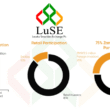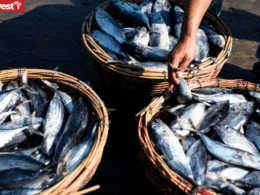A USD3.9m partnerships seeks to promote the substitution of seed potato imports to support formal farming employment and food security in Zambia.
The British Africa Agricultural Development Company (AgDevCo) and Saise Farming Enterprices Ltd (SFEL) has recently partnered to produce small-sized seeds for 104 smallholders in Zambia’s Northern Province.
The project will invest in irrigation and power infrastructure in a total area of 250 hectares (ha), as well as in farm equipment, sheds, cold stores, and machinery.
It will create 80 full time jobs of which 50% will be for women, according to AgDevCo.
The first stage of the project will concentrate on preparing 15 ha of land for planting seeds potatoes while 55 ha of irrigation will be established.
This rate will be kept annually upon completion of 217 ha of irrigated land for production.
Once the first year is completed, smallholders will be able to grow potatoes using affordable seeds, lift their annual income by USD316 per annum and count with more export opportunities.
AgDevCo expects to substitute 50% of seed potato imports with this initiative and pave the way for similar future projects for soybeans and wheat.
According to the MIT, Zambia imports of seed potatoes totaled USD4.04m in 2014 and were the largest imported group against a volume of USD3.99m in other sowing seeds in the same year.
AgDevCo currently manages a portfolio of USD12m on social impact projects in Zambia that represent 15.78% of the company’s total investment in Africa.
To date, the development of 6 social impact projects have created or sustained 523 jobs and linked 13,067 farmers to markets in Zambia.









